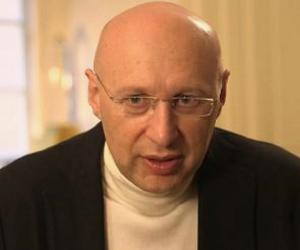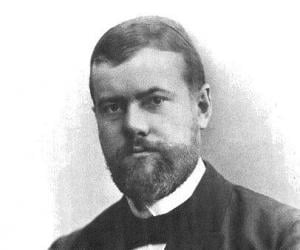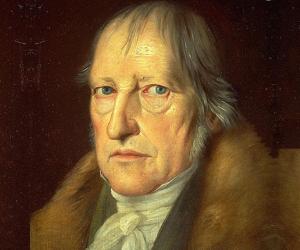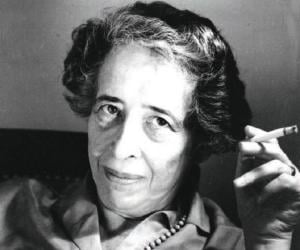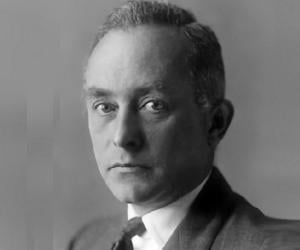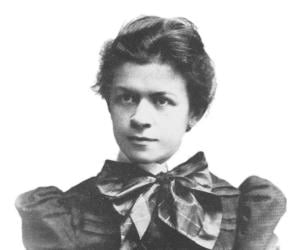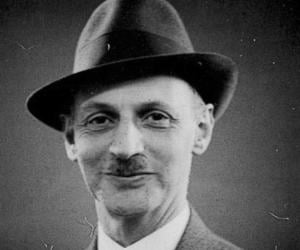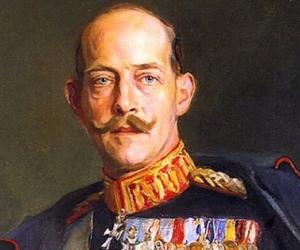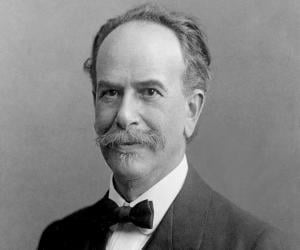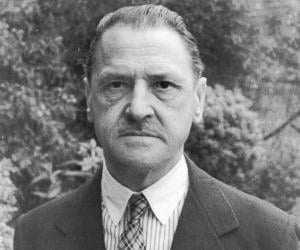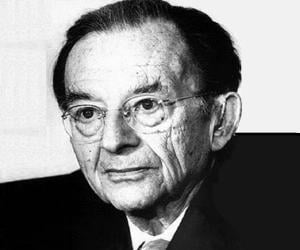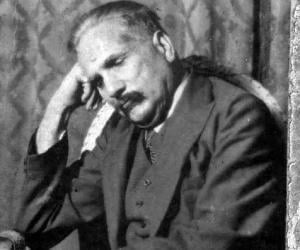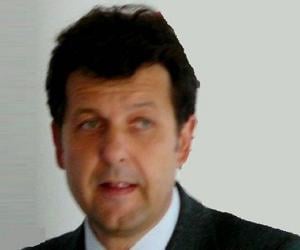Max Weber was a German historian, political economist, jurist, and sociologist. Widely regarded as one of the most influential and important theorists, Weber's ideas had a profound influence on social research and social theory. Although he did not see himself as a sociologist, Weber is often counted among the fathers of sociology alongside Émile Durkheim, Auguste Comte, and Karl Marx.
Hannah Arendt was a political theorist. Widely regarded as one of the 20th century's most prominent political thinkers, Hannah Arendt's articles and books have had a significant influence on philosophy and political theory. Her life and work inspired the 2012 biographical drama film, Hannah Arendt. Her work has also inspired several biographies written by popular authors.
Remembered for his research on cultural relativism, German-born American anthropologist Franz Boas is often referred to as the Father of American Anthropology. The son of a merchant, he was a sickly child who grew up reading a lot. He also studied folklore and developed it as an academic discipline.
Erich Fromm was a German social psychologist, psychoanalyst, sociologist, and socialist. A German Jew, he fled the Nazi regime and settled in the United States. He was a co-founder of The William Alanson White Institute and was associated with the Frankfurt School of critical theory. He is best remembered for authoring the book Escape from Freedom.
Muhammad Iqbal was a Scholar, poet, and politician. Born in British India (present-day Pakistan), Iqbal's poetry in Persian and Urdu languages is regarded as one of the greatest of the modern era. Also an influential politician, Muhammad Iqbal's vision of an independent Muslim state helped inspire the creation of Pakistan where he is recognized as the national poet.
Ricardo Eichmann is an archaeologist who worked as a professor at the University of Tübingen. From 1996 to 2020, Eichmann served as the director of the Orient Department, which is located within the German Archaeological Institute. Over the years, he has played an important role in the field of music archaeology.
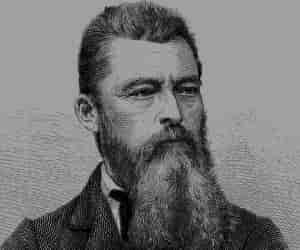
Ludwig Feuerbach was a German philosopher and anthropologist. He is best remembered for his work, The Essence of Christianity, which strongly influenced generations of future thinkers like Karl Marx, Charles Darwin, Friedrich Engels, and Sigmund Freud among others. Ludwig Feuerbach advocated atheism and his thought was influential in the progression of historical materialism.
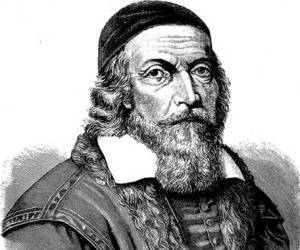
John Amos Comenius was a Czech philosopher, theologian, and pedagogue. Regarded as the father of modern education, Comenius is credited with introducing many educational concepts and innovations such as education for women, equal opportunity for poor children, and universal and practical instruction among other innovations. He also led schools and served as an adviser for governments across Protestant Europe.
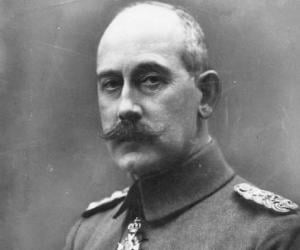
Prince Maximilian of Baden was a German politician and general. Maximilian, who belonged to the German aristocracy, was the last chancellor of the German Empire. He also played an important role in the events leading up to the creation of the Weimar Republic.

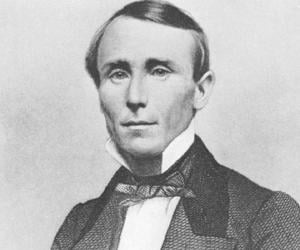
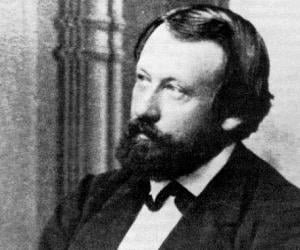
Wilhelm Dilthey was a German psychologist, sociologist, historian, and hermeneutic philosopher. An ardent admirer of Friedrich Schleiermacher, Dilthey helped revive the former's works on hermeneutics. Wilhelm Dilthey is also credited with teaching future philosophers like Hans Lipps, Eduard Spranger, and Theodor Litt.
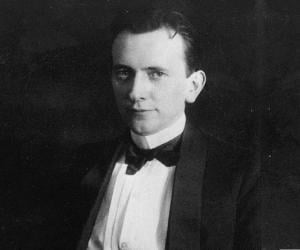
Twentieth-century Existentialist Karl Jaspers had initially followed in his father’s footsteps to study law, but had then switched to medicine. One of the pioneers of clinical psychiatry, he applied phenomenology to study mental illnesses and also developed psychopathological research. He was highly influenced by Immanuel Kant’s ideas.
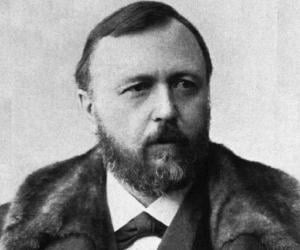
Known for his ground-breaking research on sexual psychopathology, German psychologist Richard von Krafft-Ebing worked on varied subjects such as sexual aberration and hypnosis. His Psychopathia Sexualis was one of the first written works that discussed LGBT sex and also spoke about taboo topics such as sadism, necrophilia, and masochism.
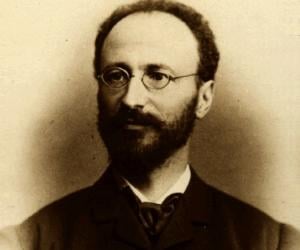
A major advocate of the Austrian school of economics, Eugen von Böhm-Bawerk made major reforms as part of the Austrian ministry of finance, such as imposition of the gold standard. He was also one of the first to oppose Karl Marx’s theory of exploitation of workers.
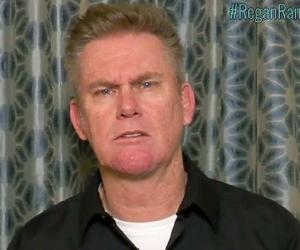
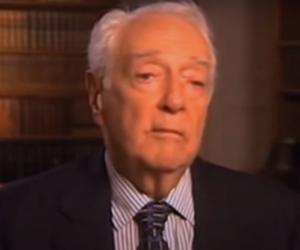
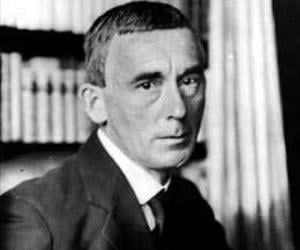
Author, poet and dramatist Hugo Ball was also a harsh social critic and a staunch pacifist. Known for his works like Critique of German Intelligence and The Flight from Time, he left Germany during WWI to settle down in neutral Switzerland, eventually becoming famous as the founder of the Dada movement and a pioneer in the development of sound poetry.
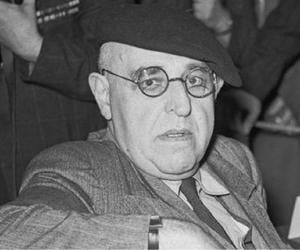
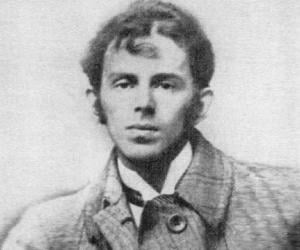
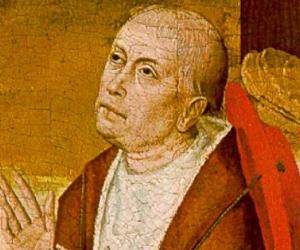
Nicholas of Cusa was a German mathematician, astronomer, jurist, theologian, and philosopher. One of the first supporters of Renaissance humanism in Germany, Nicholas of Cusa made significant political and spiritual contributions in European history. He is remembered for his efforts to reform the universal and Roman Church.

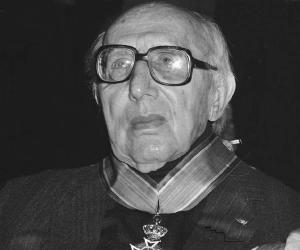
Norbert Elias was a German-British sociologist. He is best known for his theory of civilizing/decivilizing processes. He studied philosophy, psychology, and medicine at the University of Breslau and was deeply involved in the German Zionist movement. He later moved to the United Kingdom where he pursued an academic career. He wrote prolifically following his retirement.
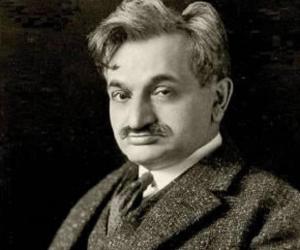
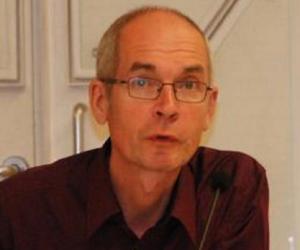
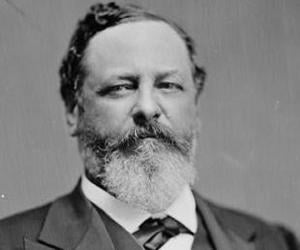
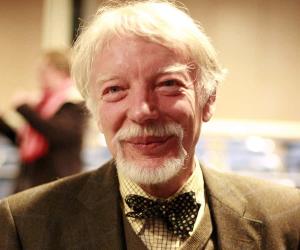
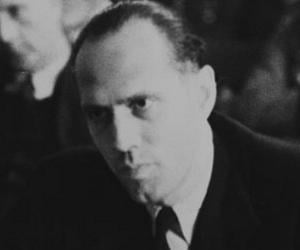

German theologian Philip Melanchthon had a major role in establishing public schools in Germany. A friend of Protestant Reformation theologian Martin Luther, he is remembered for penning the Apology of the Augsburg Confession, a significant confession of Lutheranism. He had also served as a professor at the University of Wittenberg.
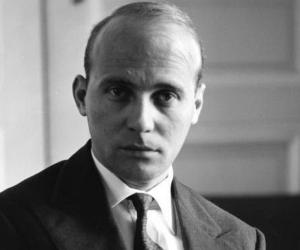
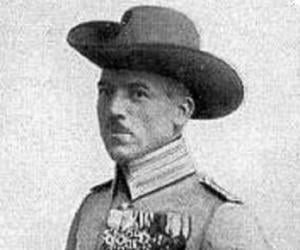
The son of a German dentist, Hermann Detzner grew up to be an engineer, topographer, and surveyor. He was also part of the German colonial troops in Cameroon and German New Guinea. Refusing to surrender to Australian troops, he and his forces explored the interiors of German New Guinea for 4 years.
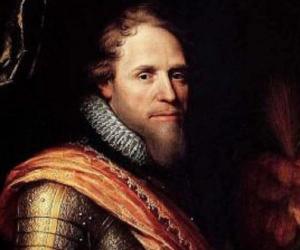
Maurice, Prince of Orange is remembered for transforming the Dutch army with his modern military strategy and engineering. The second son of William I the Silent, he was part of the Eighty Years’ War with Spain. He passed away shortly before the siege of Breda was completed.
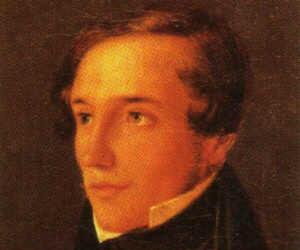
A qualified physician and psychiatrist, Heinrich Hoffmann managed the state mental hospital of Frankfurt on Main. However, he is best known as an author of children’s books and for his creation Struwwelpeter, or Slovenly Peter, a character with a naughty personality and a weird appearance, initially created for his son.
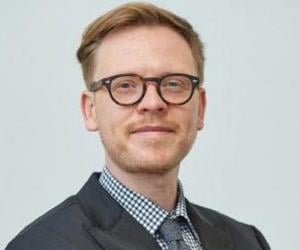
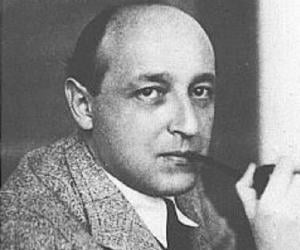
German sociologist Karl Mannheim, known for his contribution to the concepts of classical sociology and the sociology of knowledge, initially worked as a professor but later fled to the UK to escape the Nazi regime. He later joined the London School of Economics and remained there till his death.
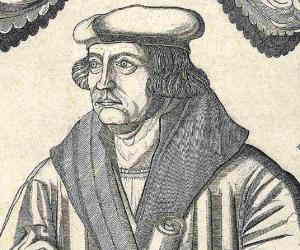
Johann Eck was a German theologian and Catholic counter-reformer who was one of Martin Luther's most prominent theological opponents. He also contributed as an educator, working at the University of Ingolstadt as a professor of theology.
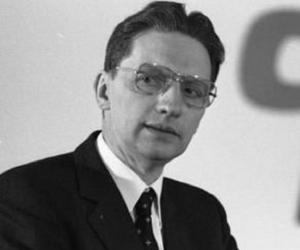
One of the greatest theologians of our era, Wolfhart Pannenberg was also a renowned academic, who taught at different German universities for more than three decades. An expert on systematic theology, he mostly worked on Christology and philosophy of history, publishing numerous books and scholarly articles including Jesus: God and Man, Systematic Theology etc, thus contributing greatly to modern theology.
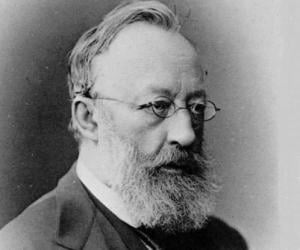
Swiss author and poet Gottfried Keller remains one of the most significant contributors to German literature. After devoting his initial years to landscape painting, he focused on poetry and eventually became a pioneer of poetic realism. He also penned novels such as Green Henry and several short story collections.
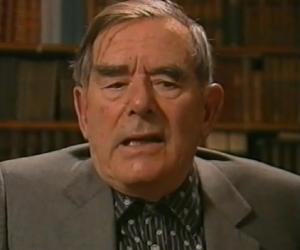
Golo Mann was a German historian and essayist. An influential personality, Mann is best remembered for his most popular work German History in the 19th and 20th Century, a survey of the political history in Germany.
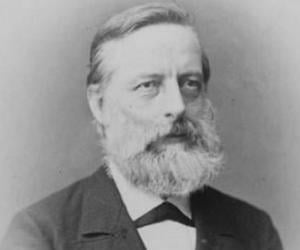
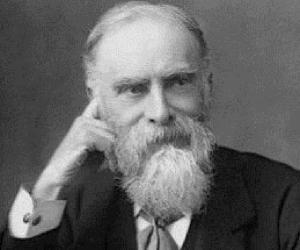
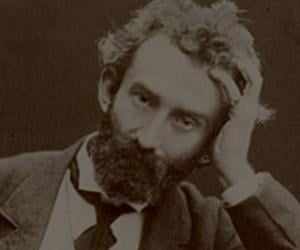
Russian explorer and anthropologist Nicholas Miklouho-Maclay was one of the first scientists to live with the indigenous community of New Guinea. Named the Moon Man by the Papuans for his ability to produce light through his lantern, he fought against slavery. He was idolized by both Russia and Australia.
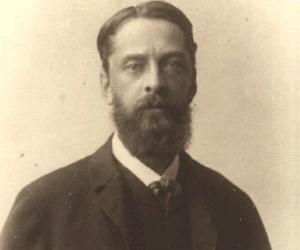
One of the principal members of the Austrian school of economics, Friedrich von Wieser is known for coining the term marginal utility and developing number of theories including the alternative cost theory, proclaiming that cost of a commodity depends mainly on its subjective, or psychological, value. Among his many publications more significant are Natural Value and Foundations of Social Economy.
